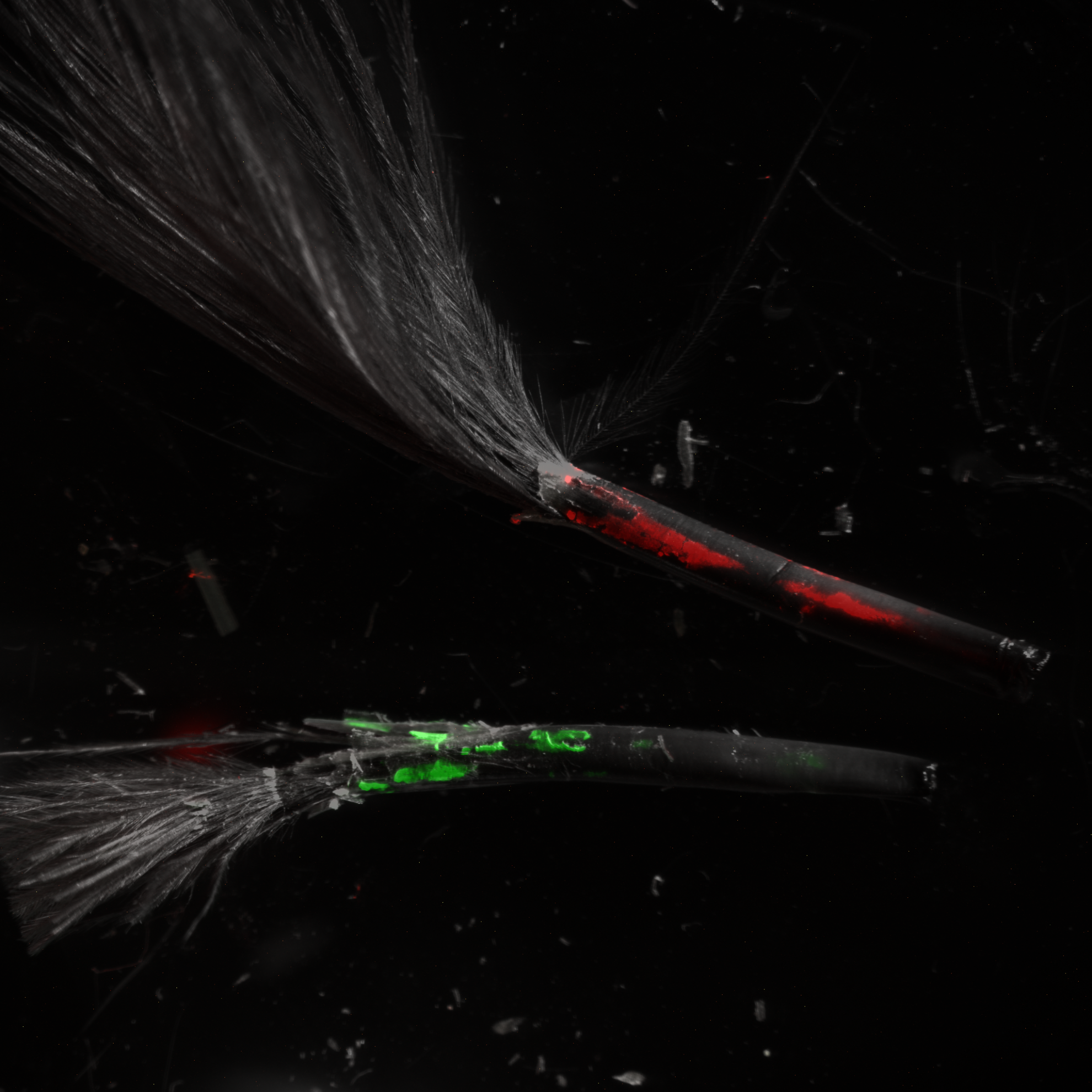Replication of Marek's disease virus is dependent on synthesis of de novo fatty acid and prostaglandin E2
Marek's disease virus (MDV) causes deadly lymphoma and induces an imbalance of the lipid metabolism in infected chickens. Here, we discovered that MDV activates fatty acid synthesis (FAS) pathway in primary chicken embryo fibroblasts (CEF). In addition, MDV infected cells contained high levels of fatty acids and showed an increased numbers of lipid droplets (LDs). Chemical inhibitors of the FAS pathway (TOFA and C75) reduced MDV titre by approximately 30 folds. Addition of the downstream metabolites including malonyl-CoA or palmitic acid completely restored the inhibitory effects of the FAS inhibitors. Furthermore, we could demonstrate that MDV infection activates COX-2/PGE2 pathway as evident by increased levels of arachidonic acid, COX-2 expression and PGE2 synthesis. Inhibition of COX-2/PGE2 pathway by chemical inhibitors or knockdown of COX2 using shRNA reduced MDV titres, suggesting that COX-2 promotes virus replication. Exogenous PGE2 completely restored the inhibition of the COX-2/PGE2 pathway in MDV replication. Unexpectedly, exogenous PGE2 also partially rescued the inhibitory effects of FAS inhibitors on MDV replication, suggesting that there is link between these two pathways in MDV infection. Taken together, our data demonstrate that the FAS and COX-2/PGE2 pathways play an important role in the replication of this deadly pathogen.Importance Disturbances of the lipid metabolism in chickens infected with Marek's disease virus (MDV) contribute to the pathogenesis of disease. However, the role of lipid metabolism in MDV replication remained unknown. Here, we demonstrate that MDV infection activates fatty acid synthesis (FAS) and induces lipid droplet (LD) formation. Moreover, our results demonstrate that MDV replication is highly dependent on the FAS pathway and the downstream metabolites. Finally, our results reveal that MDV also activates the COX-2/PGE2 pathway which supports MDV replication by activating PGE2/EP2 and PGE2/EP4 signalling pathways.
